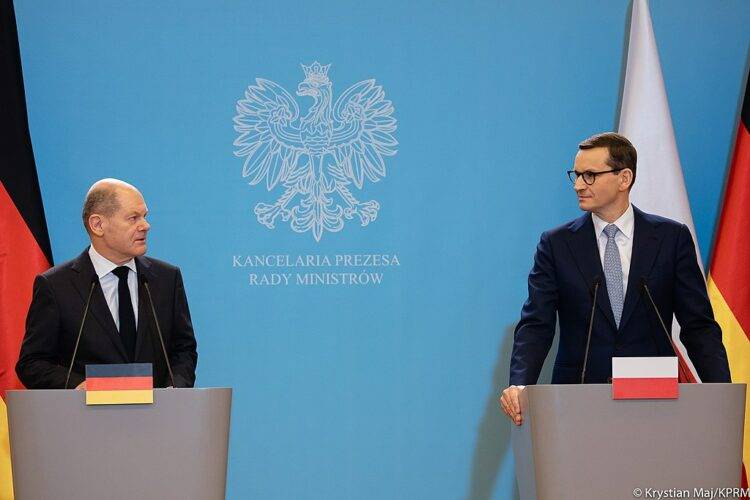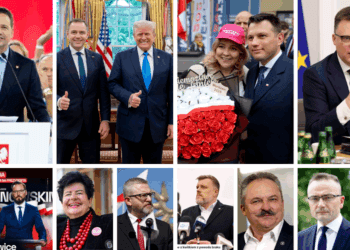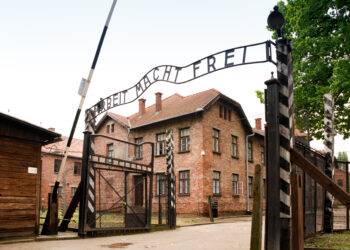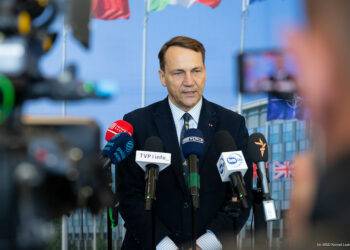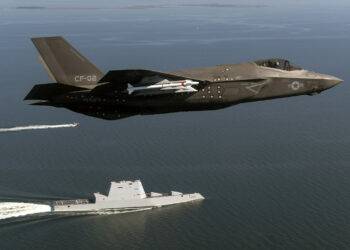Germany’s failure to heed repeated warnings from Poland and other Eastern European nations has led to missed opportunities to strengthen NATO’s eastern flank. The West promised to support Ukraine when the first bombs fell on Kyiv, but Berlin and other Western capitals quickly forgot their promises. The result has been a significant compromise of their credibility in Eastern Europe – says German press.
- More News from Poland on our Homepage.
- Sign up to our Newsletter to receive a weekly recap and stay informed about current events in Poland
- Don’t forget to follow us on Facebook.
Jan Puhl’s commentary in Der Spiegel highlights how Germany and other Western capitals have failed to listen to their Eastern European partners. Despite promises to take their experiences seriously, they quickly forgot their promises. The decisions made in Vilnius have done little to assuage the concerns of Poland and the Baltic states. The lack of concrete support for Ukraine has left many in the region feeling frustrated and abandoned.
Puhl argues that the decisions made in Vilnius could have a chilling effect on Ukraine’s aspirations to join NATO and the EU. While the country has made significant strides in recent years, it still faces significant challenges in terms of corruption, oligarchic influence, and political instability. Its people are eager to embrace the West, but they need concrete support to make that happen.
The Importance of Poland and Eastern Europe
Poland and other Eastern European nations have been at the forefront of NATO’s efforts to strengthen its eastern flank. They have been vocal in their support for Ukraine and other countries in the region, and they have repeatedly warned their Western partners about the dangers posed by Russia. Despite this, they have often been ignored or dismissed.
The importance of Eastern Europe cannot be overstated. It is a crucial region for European security, and any threats to its stability pose significant risks to the entire continent. Poland, the Baltic states, and other countries in the region have made significant progress in recent years, but they still face significant challenges. They need the support of their Western partners to continue their progress.
Missed Opportunities and Broken Promises
The decisions made in Vilnius were a significant missed opportunity to strengthen NATO’s eastern flank. Poland and other Eastern European nations had pushed for a clear path to NATO membership for Ukraine, arguing that this was the only way to deter Russian aggression. However, their Western partners were hesitant to make such a commitment.
Instead, NATO offered little more than what had been promised in 2008 in Bucharest. This decision was a significant blow to Eastern European nations, who felt that their concerns had been dismissed. It also left Ukraine feeling abandoned and vulnerable.
The Consequences of Inaction
The consequences of Germany’s inaction have been significant. Eastern European nations feel that their concerns have been ignored, and their trust in their Western partners has been eroded. This lack of trust has made it more difficult to build a united front against Russian aggression.
Moreover, the failure to support Ukraine has had real-world consequences. The conflict in Ukraine has led to the deaths of thousands of people and has created a humanitarian crisis. It has also led to increased tensions between Russia and the West, which could have significant consequences for European security.
The Importance of a Strong Eastern Flank
A strong eastern flank is crucial for European security. It serves as a deterrent against Russian aggression and helps to maintain stability in the region. However, this can only be achieved if Eastern European nations feel that their concerns are being taken seriously.
The West needs to do more to support its Eastern European partners. This means providing concrete support for Ukraine and other countries in the region. It also means listening to their concerns and taking them seriously.
The Need for a United Front
To build a strong eastern flank, the West needs to present a united front. This means working together to address common challenges and concerns. It also means putting aside differences and focusing on shared interests.
Moreover, it means recognizing that Eastern European nations have a critical role to play in European security. They are on the front lines of any potential conflict with Russia and have valuable insights and experiences that can help to strengthen the region’s stability.
The Path Forward
The path forward requires a renewed commitment to Eastern Europe and a willingness to take its concerns seriously. This means providing concrete support for Ukraine and other countries in the region, including military assistance, economic aid, and diplomatic support.
It also means working together to address common challenges, such as corruption, political instability, and oligarchic influence. Finally, it means recognizing the importance of a strong Eastern Europe and the crucial role that Poland and other countries in the region have to play.
Germany and other Western capitals have ignored warnings from Poland and other Eastern European nations, leading to missed opportunities to strengthen NATO’s eastern flank. The lack of concrete support for Ukraine has eroded trust and left the region feeling vulnerable. However, the path forward requires a renewed commitment to Eastern Europe and a willingness to take its concerns seriously. Only then can a united front be presented, and a strong eastern flank be achieved.
- More News from Poland on our Homepage.
- Sign up to our Newsletter to receive a weekly recap and stay informed about current events in Poland
- Don’t forget to follow us on Facebook.

